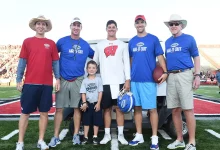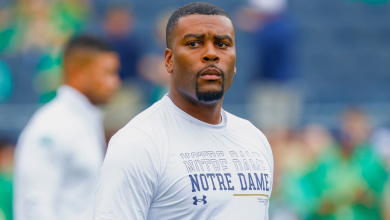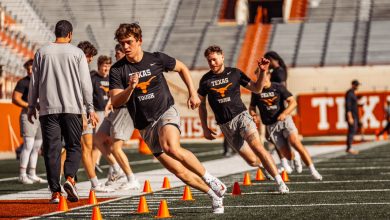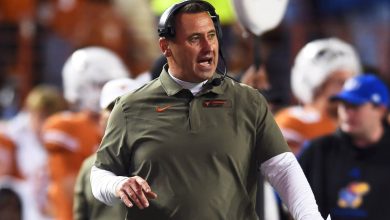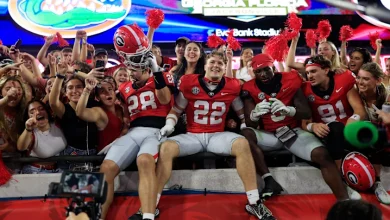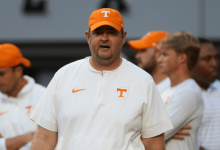Archie Griffin: The Greatest College Football Player of All Time, Surpassing Legends Earl Campbell, Tim Tebow, and Herschel Walker.

In the storied history of college football, few names evoke the kind of reverence and admiration that Archie Griffin commands. A two-time Heisman Trophy winner—the only player ever to claim the award twice—Griffin’s collegiate career at Ohio State University stands as the gold standard for excellence on the gridiron. While greats like Earl Campbell, Tim Tebow, and Herschel Walker have dazzled the sport with their own remarkable achievements, Archie Griffin’s combination of consistency, impact, leadership, and legacy places him in a class above all others.
This article explores the reasons why Archie Griffin remains college football’s greatest player, delving into his record-setting feats, leadership qualities, and enduring influence on the game.
The most obvious starting point in any discussion about Archie Griffin’s greatness is his unprecedented back-to-back Heisman Trophy wins in 1974 and 1975. The Heisman Trophy, awarded annually to the most outstanding player in college football, has been the benchmark of individual excellence since its inception in 1935.
Griffin’s feat is singular in college football history. No other player, including legends Earl Campbell, Tim Tebow, or Herschel Walker, has managed to win the award twice, let alone in consecutive seasons. This extraordinary accomplishment underscores his sustained dominance over multiple years, a rarity in a sport often marked by fleeting flashes of brilliance.
While Earl Campbell (1977) dazzled with his raw power, Tim Tebow (2007) with his dual-threat versatility, and Herschel Walker (1982) with his explosive athleticism, none matched Griffin’s consistency and ability to perform at an elite level season after season.
Archie Griffin’s statistical output during his collegiate career solidifies his place among the all-time greats. Over four seasons with the Buckeyes, Griffin amassed an astonishing 5,589 rushing yards and 26 touchdowns. His ability to consistently gain yardage and wear down defenses was unmatched.
To put that in perspective:
- Earl Campbell rushed for 4,443 yards in his three years at Texas, a monumental achievement that helped him earn the 1977 Heisman.
- Herschel Walker, known for his bruising style, totaled 5,259 rushing yards at Georgia over three seasons.
- Tim Tebow, the quintessential dual-threat quarterback, accumulated 9,285 total yards (rushing and passing) and 88 total touchdowns at Florida.
Yet, the key distinction lies in Griffin’s unmatched durability and workhorse role in a dominant Ohio State offense, consistently delivering yardage against some of the toughest defenses in the nation.
Leadership and Team Impact: Beyond the Numbers
Archie Griffin was not only a statistical powerhouse but also a consummate leader. His calm demeanor, relentless work ethic, and team-first mentality helped define Ohio State football during the mid-1970s. Griffin captained the Buckeyes, leading by example both on the field and in the locker room.
Ohio State won two Big Ten titles and earned two Rose Bowl victories during his tenure, achievements reflecting Griffin’s ability to elevate the entire team. His leadership transcended individual accolades—he inspired teammates to excel and fostered a culture of winning.
While Earl Campbell’s sheer physical dominance inspired the Longhorns, and Tebow’s charismatic leadership rallied Florida to multiple championships, Griffin’s quiet confidence and steady excellence built the foundation for sustained team success.
Durability and Consistency: The Hallmarks of Greatness
One of Griffin’s defining attributes was his remarkable durability. Playing in an era marked by brutal defenses and physical play, he never missed a game, rushing for over 1,000 yards in three consecutive seasons (1973-1975). His consistent performance, game after game, season after season, set him apart from many who relied on flashes of brilliance.
For comparison:
- Herschel Walker’s career was truncated early by his early entry into professional football.
- Tim Tebow’s collegiate career, while decorated, was marked by a single standout season for the Heisman in 2007.
- Earl Campbell’s dominant 1977 season was one for the ages but did not reflect the same level of multi-year consistency Griffin demonstrated.
Griffin’s endurance allowed him to be a cornerstone of Ohio State’s offense over an extended period—a trait that embodies the essence of a true great.
Archie Griffin’s legacy is also deeply rooted in his character. Known for his humility, grace, and dedication off the field, Griffin set a standard for what it means to be a student-athlete. He graduated with honors, demonstrating a commitment to academics that balanced his athletic success.
In an era before massive endorsement deals and social media fame, Griffin remained grounded and focused, earning respect across the college football community. His role as an ambassador for the sport continues to this day, including his work as a motivational speaker and Ohio State’s Director of Player Relations.
This combination of athletic excellence and personal integrity elevates Griffin’s status beyond the numbers.
To truly appreciate Griffin’s greatness, it’s important to examine how he stacks up against other college football legends:
- Earl Campbell: A powerhouse runner and 1977 Heisman winner, Campbell’s impact was immense, but his college career was shorter and didn’t feature the repeated peak performances Griffin displayed.
- Tim Tebow: A two-time national champion and Heisman winner, Tebow was a dynamic dual-threat quarterback. Yet, Tebow’s style was different—marked by a unique blend of passing and running—not the pure rushing dominance Griffin embodied.
- Herschel Walker: Walker was explosive and game-changing, and his tenure at Georgia was brilliant but relatively brief. Griffin’s prolonged excellence offers a different kind of greatness grounded in consistency.
Each of these players is a legend, but Archie Griffin’s unique combination of two Heisman trophies, leadership, durability, and character makes his college career arguably the most complete.
Archie Griffin’s influence extends far beyond his playing days. His success helped solidify Ohio State as a perennial powerhouse in college football. Future Buckeyes running backs have often cited Griffin as their inspiration and standard-bearer.
In the wider scope of college football history, Griffin set a benchmark that remains a point of reference for excellence. His achievements challenge future players to match not just peak performances but sustained dominance.
Today, Archie Griffin’s legacy is celebrated not only at Ohio State but throughout the college football world. The university’s football MVP award bears his name, and his image and story inspire players, coaches, and fans alike.
Griffin’s role as a mentor and leader in the Ohio State community continues to impact young athletes, ensuring that his greatness is passed on to future generations.
Archie Griffin’s place as the greatest college football player of all time is supported by unparalleled achievements, consistent dominance, and the intangible qualities of leadership and character. While Earl Campbell, Tim Tebow, and Herschel Walker each carved out legendary careers, Griffin’s unique blend of two Heisman trophies, relentless consistency, and quiet leadership set him apart.
As college football continues to evolve, the legacy of Archie Griffin stands as a beacon—a testament to what true greatness looks like both on and off the field.
Ohio State fans and college football enthusiasts worldwide will forever celebrate Griffin not only as a record-holder but as the embodiment of excellence in the sport’s rich history.


